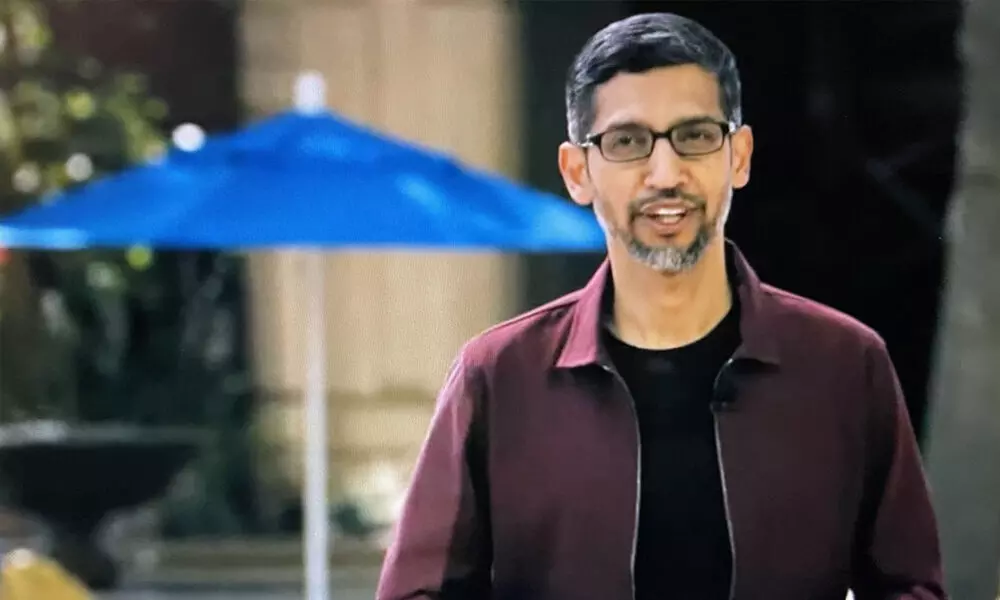A glimpse of future of work, says Pichai
Many companies, including ours, will continue to offer flexibility even when it’s safe to be in the same office again
image for illustrative purpose

San Francisco Reiterating that his home country India as well as Brazil are going through their most difficult moments of the pandemic, Alphabet and Google CEO Sundar Pichai has laid down a detailed roadmap on how the future of work will unfold for millions across the globe.
Kicking off the I/O Developers Conference from the Mountain View campus late on Tuesday, Pichai said that Covid-19 has deeply affected the entire global community over the past year and continues to take a toll. "Places such as Brazil, and my home country of India, are now going through their most difficult moments of the pandemic yet. Our thoughts are with everyone who has been affected by Covid and we are all hoping for better days ahead," he stressed. Pichai said that the company continues to build a more helpful Google, for everyone.
"One of the biggest ways we can help is by reimagining the future of work. Over the last year, we've seen work transform in unprecedented ways, as offices and coworkers have been replaced by kitchen countertops and pets," he noted.
"Many companies, including ours, will continue to offer flexibility even when it's safe to be in the same office again. Collaboration tools have never been more critical, and today we announced a new smart canvas experience in Google Workspace that enables even richer collaboration," Pichai told the virtual audience of over 2,00,000 people.
He informed that there are 150 million students and educators learning virtually over the last year with Google Classroom.
"Other times it's about helping in little moments that add up to big changes for everyone. For example, we're introducing safer routing in Maps. This AI-powered capability in Maps can identify road, weather and traffic conditions where you are likely to brake suddenly; our aim is to reduce up to 100 million events like this every year," he said.
Stressing on the role of AI, Pichai said the company has used the technology to improve the core Search experience for billions of people by taking a huge leap forward in a computer's ability to process natural language. "Yet, there are still moments when computers just don't understand us. That's because language is endlessly complex: We use it to tell stories, crack jokes and share ideas - weaving in concepts we've learned over the course of our lives. The richness and flexibility of language make it one of humanity's greatest tools and one of computer science's greatest challenges," Pichai elaborated.

